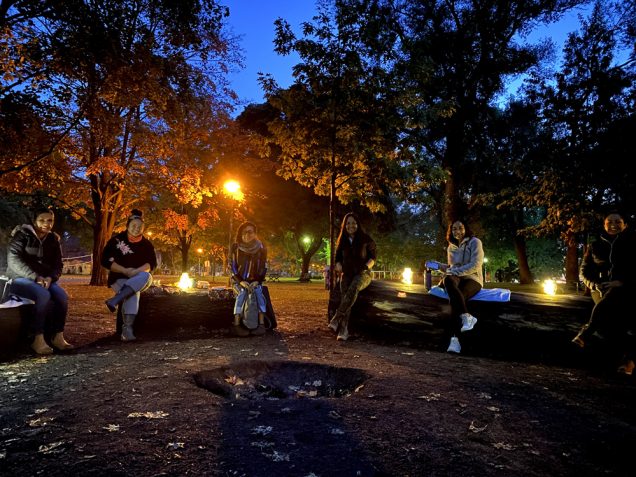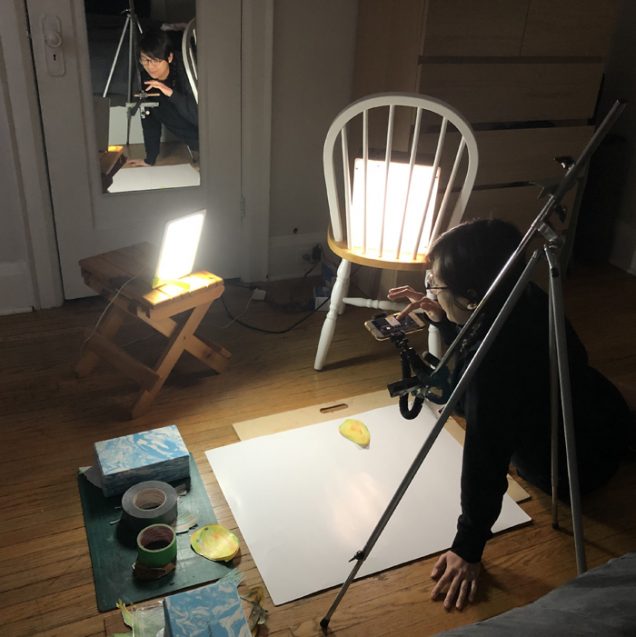Cultivating A Culture of Storytelling in the Filipino/a/x Caregiving Community
Cultivating A Culture of Storytelling in the Filipino/a/x Caregiving Community

Zoom Workshop
By Justine Abigail Yu
“I am one of those Filipino women who was forced to leave my country and my family out of the urgent need to survive…When I came to Canada, I was hopeful that Filipino workers, especially caregivers who left their own families to care for others here will have better lives to be able to provide for their families…Having temporary status and being tied to one employer put me in a condition wherein I was discouraged from changing employers no matter how difficult my working conditions were.”
These are the words from just one Filipina caregiver, Leny Rose, who has been working on the frontlines of this global pandemic and who has been giving care to families in Canada for the last fifteen years.
By now it is no longer news that COVID-19 has brought devastating and disproportionate loss, anguish, and incredible stress for the Filipino/a/x community and will continue to do so. By now we should be well acquainted with the numbers that illustrate just how our community dominates the care industry and the frontlines of this pandemic.
But in case we need a refresher: 34.4% of internationally-trained nurses around the world are from the Philippines – that’s fully a third of the world’s nurses. In Canada specifically, Filipino/a/xs make up one in 20 healthcare workers and more than 90% of the migrant caregivers providing in-home care under the Live-In Caregiver program.
But those are just the numbers. Those are the faceless and maybe even forgettable statistics.

Community storytellers
Photo: Jennifer Chan
Over the last two months, I’ve had the sincere privilege of facilitating writing workshops specifically for Filipino caregivers, nurses, personal support workers, and other essential workers in an attempt to move past these cold and unfeeling numbers and instead, get to the heart of our caregivers’ stories.
As a part of my work through Living Hyphen, a community that explores what it means to live in between cultures, and in partnership with North York Community House (NYCH), a multi-service settlement agency, we developed Cultivating Care – a writing and storytelling workshop that explores what it means to give and receive care from afar during a global pandemic and as part of a diaspora, in general.
We hosted two 2-hour sessions in December and January where we gathered collectively 15 Filipino/a/x frontline workers and carved out a space where they could write about their experiences, while also speaking out loud their stories with a supportive and encouraging community. Each participant was offered compensation for their time and energy because giving time to a workshop like this means taking time away from something else – be it work, family time, or even just time to catch up on rest.

Photo: Elvin Velasco
“I enjoyed being a part of this workshop, the story of care project has opened my mind on how I view care not only for myself but those also around me,” said Olivia dela Cruz, an essential worker and one of the workshop writers. “It also brings creativity and skills that I never know I can do. It has now become a big part of my self-care routine. Being a part of this workshop also helps me build relationships with others virtually. With the pandemic we are facing it is very important to be connected.”
As frontline workers in the midst of the greatest global health crisis of our generation, there isn’t often much time, space, or even energy to dedicate to telling one’s stories. Add to that the fact that our community often shies away from and outright shames emotional conversations around hardship, stress and anxiety, and mental health. This Cultivating Care writing workshop aimed to break down these barriers and create a nourishing environment where caregivers could give back to themselves in a small, but powerful way.
But the Cultivating Care workshops are just one small piece of a larger project called Stories of Care that strives to highlight and amplify the voices and stories of Filipino/a/x frontline workers. Led by Jennifer Chan, Stories of Care started as a project at the North York Community House whose settlement workers have been serving many Filipino immigrants, mostly women who arrived in Canada as a part of the Live-In-Caregiver Program. Seeing the need to create a space for these stories firsthand, Chan initiated a six-week writing course in the summer of 2020 before modifying the writing model to less-time intensive sessions with larger participation.
Stories from that original workshop are now featured in a digital exhibition called “Exchange Piece” in the DesignTO Festival. In partnership with the Department of Imaginary Affairs, a non-profit with a mission of elevating the stories of first-generation Canadians and youth, Chan commissioned three Filipinx artists to create artistic renderings of these stories to spark widespread and necessary conversations about the ways in which Filipino/a/x frontline workers are taking care of Canadians during this pandemic. The exhibition will be online at www.dia.space/projects/storiesofcare/ until the end of February.
“Through the Stories of Care I have witnessed healing and grief through every aspect of this project,” said Chan. “My hope is that we can find funding and partners to continue this work and to begin to share the stories to see policy change.”
What began as an experimental project is slowly becoming a movement to prioritize the voices of our community caregivers – a group of people who have all too often been ignored and even silenced. While there is much physical healing to do across Canada and around the world from this illness, there is also much healing to do on the emotional level. Creating this culture of community storytelling from the people who are at the frontlines of this deadly pandemic is the first and most necessary step in that direction.
———————————
Justine Abigail Yu is the founder, Editor-in-Chief, and lead facilitator at Living Hyphen, a community that explores the experiences of people living in between cultures as hyphenated Canadians.
Comments (0)